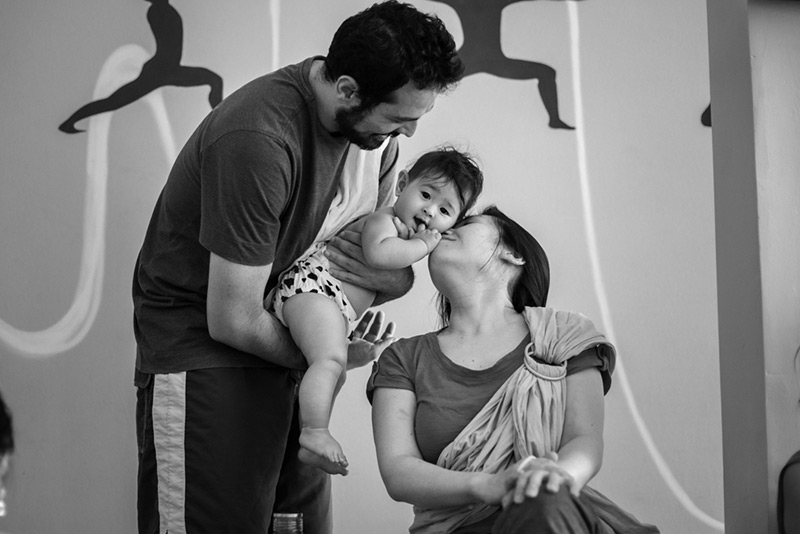From birth onwards
From birth onwards the biological unity maintained by a mother and her child throughout pregnancy does not stop but remains just as intensively functional and mutually involving. During birth the mother’s uterine contractions that serve to push the baby out into the world, also stimulate all the major systems the baby needs for survival in the world outside of the womb.
For the baby the natural birth process is the equivalent of the strongest massage they are likely to receive during the course of a lifetime and the depth of these contractions and the length of time through which they are applied, constitute a profound introduction to the benefits of baby massage.
The importance of this kind of stimulation is made clear from recorded observations which show that when the baby is inadequately stimulated during birth a failure of activation can occur in principle organs. In elective caesareans for example, where birth takes place without labour, babies are known to have ‘greater lethargy, decreased reactivity and less frequent crying’. Overall the birth caesarean mortality rate from the respiratory disorder, hyaline membrane disease is more frequent and respiratory and digestive disorders may also be more prevalent. Biochemical differences are also seen, the most significant being the glucagon factor which relates to the production of sugar in newborn babies. Without labour, as in elective caesareans, this response is diminished, where labour has occurred as in emergency caesareans however these responses remain normal. All of which seems to show that babies born by elective caesareans especially need to be massaged.
From birth on the baby’s need for bodily contact is compelling and if that need is not adequately satisfied, even though all other needs are that baby will suffer. The baby’s first contact with this world and life that goes on around them comes through their sense of touch. Touch ensures our contact with reality until all our other senses are fully developed. The power of touch is far more than just skin deep, touch brings about a number of physical and physiological changes and these changes are measurable in emotional, neural, glandular, biochemical, muscular and cutaneous changes on the surface of the skin
Following birth the baby remains connected to their mother, her womb still supporting her baby, the placenta giving blood and oxygen through the umbilical cord until the baby is ready to breathe independently. If the cord is not cut prematurely the baby’s first emotional message being this world will continue to meet your needs in the same way. Of course if the cord is cut before the baby is breathing independently the message is more like ‘in this world you are going to have to fight for your very breath’.
Once breathing independently skin to skin contact between a mother and her child is the first language the baby understands and the one he or she will respond to the most.
Compared with all other mammals every human baby is born premature and for the first six weeks needs to be held, rubbed, rocked and talked to until they have gathered their senses in a new and unfamiliar environment. Our mother is the only environment familiar to us when we enter into this world. Separation from our mother at birth for whatever reason is an option that should not be taken lightly.

Leave a Reply